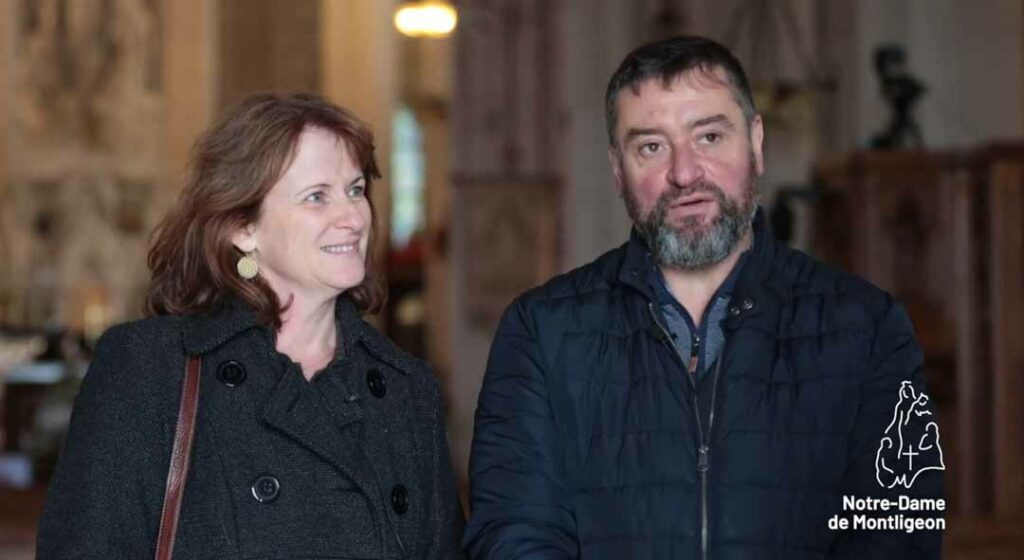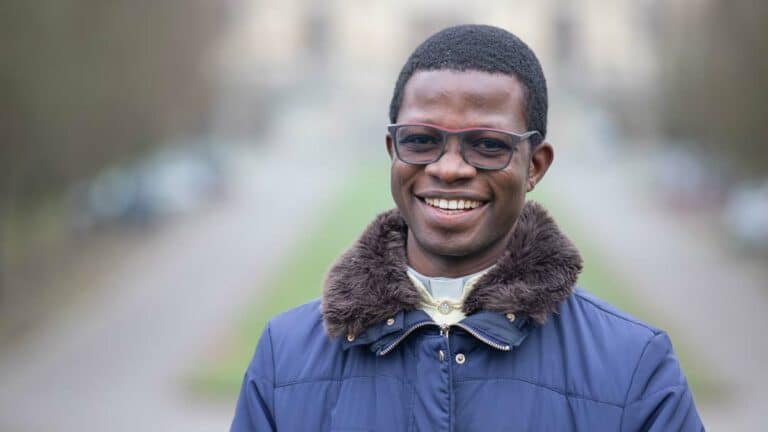Bérangère and Stéphane have both suffered the bereavement of someone close to them. We met them at Montligeon on All Saints’ Day. They talked to us about death and gave us their advice on how to get better after bereavement.
Recovering from grief
Stéphane: I don’t want to shock anybody in using such a word but one of the great graces which I received was that my grief got purified. In fact, in the very first moments of the loss of that loved-one, I realized that in fact I was feeling sorry for myself and for the life that I would never have with that person, something I regarded as unfair.
Purifying one’s grief
By grace I was able to purify my grief and resist to everything that dragged me down, like regret, remorse, resentment (for example in connection to doctors who perhaps had not done everything they should), or nostalgia, melancholy, etc. Each time I was tempted to sink, I thought: “No! This does not turn me to God!”. Whereas if I stay turned to Him, I remain hopeful.
Taking action
Bérangère: Hopefulness is what uplifts you and brings you back to life. To get better, you also need to take action. So I questioned myself: “What do I most want in my life? Answer: Being loved and love.” Therefore I took action and went on to meet people.
Stéphane: Our deceased loved-ones wish one only thing for us –that we be happy. They don’t want us to be sad, they just want us to be happy and enjoy our lives.
Being happy for those around us
Bérangère: The people around us also want to see us happy. Sometimes we may be sad when we see other people’s happiness and think: “What about me?” Alright, God has not forgotten you. All you have to do is to delight in others’ happiness. Just feed on other people’s love and you’ll see, one day, you will be happy.
Why come to Montligeon?
Bérangère: We came to Montligeon to connect to the souls in purgatory, that is to all our departed loved-ones, especially today on All Saints Day. The liturgy in today’s Mass was very solemn and this was very beautiful. We really felt something simple, deep and true.
Stéphane: Here, you can feel the love flowing between our deceased and us, because we pray for them and they pray for us.
We find this very moving, and even if not all the time, this is particularly sensitive in those days. We were both affected by the loss of a loved-one and, since we believe in Jesus, we know that, with Jesus, life is always the winner in the end.
Death is not sad
Bérangère: Death is not sad. What is sad is losing and missing the person we loved so much. However, death is but a passage toward hope, which is Love capital L, the love of God, the love of Christ.
Stéphane: As to myself, as I went through that stage of mourning, I received the grace of seeing life with a whole new perspective. Indeed, I am now deeply convinced that living on earth is not a purpose in itself. God leads it. Therefore, death is not sad for us.
Bérangère: We are on a constant conversation with our departed loved-ones. I even ask them to intercede for me or for other people, just like you call upon the saints. They are just present in a different way.
What is your idea of purgatory?
Stéphane: It is a time for getting prepared, I think. I read a very enlightening piece of teaching which defines purgatory with its six heavens. The first one is on earth and consists in living with a God you cannot see but with brothers and sisters in the Church. After death, when you review your whole life, is the second heaven of purgatory. You know that Jesus is there and has welcomed you but you face your life alone. Purgatory is not a punishment, which is reassuring.
Bérangère: We do our first purgatory on earth by walking our path of life, getting purified and sanctified through the woes and hardships we may experience. If we have not been graced to have that encounter with Christ on earth, how could it be granted to us in heaven? This is why I think there is a transition stage. The souls in purgatory need light to be able to get out of it. They need to dare meet love. Our job is to get them out.




